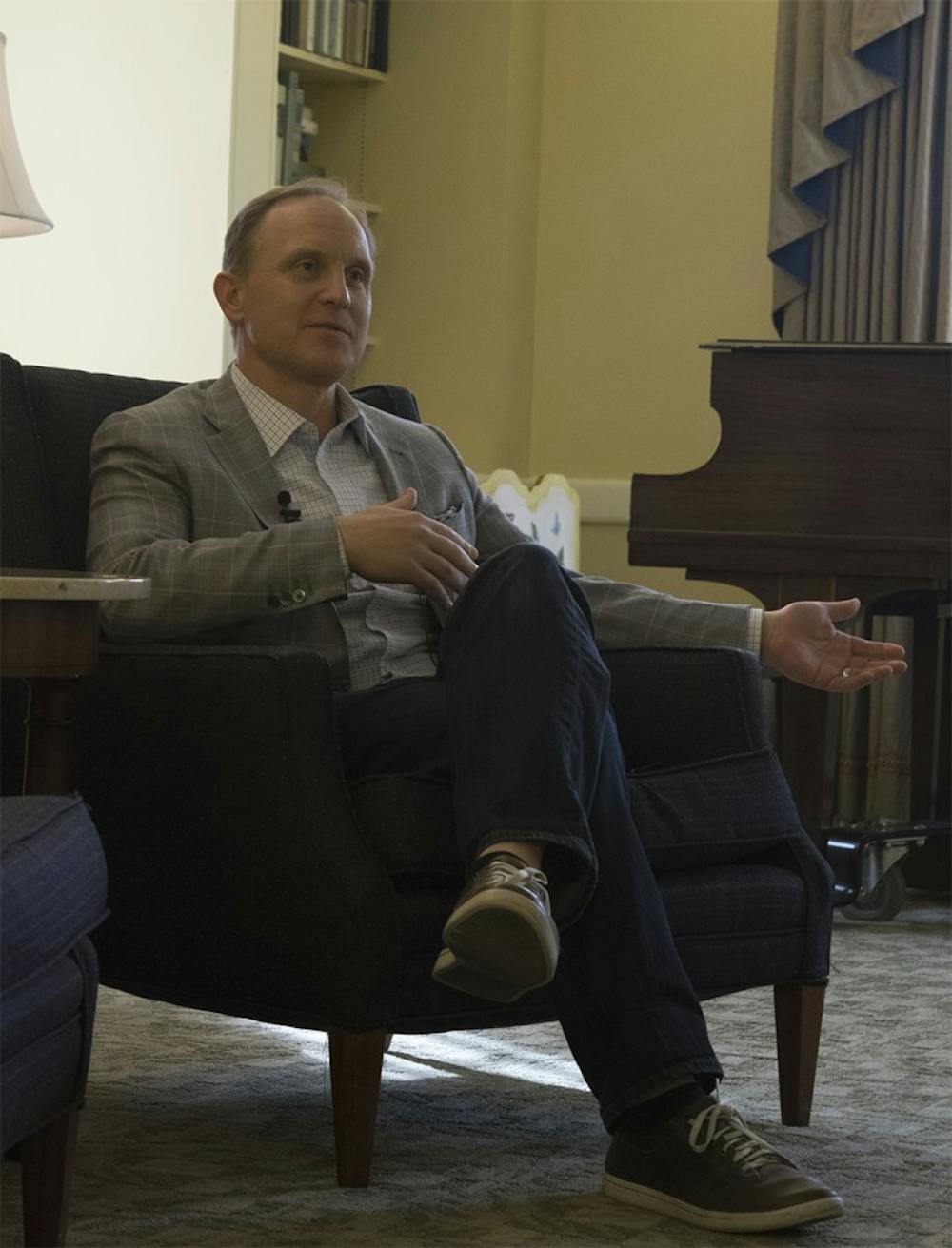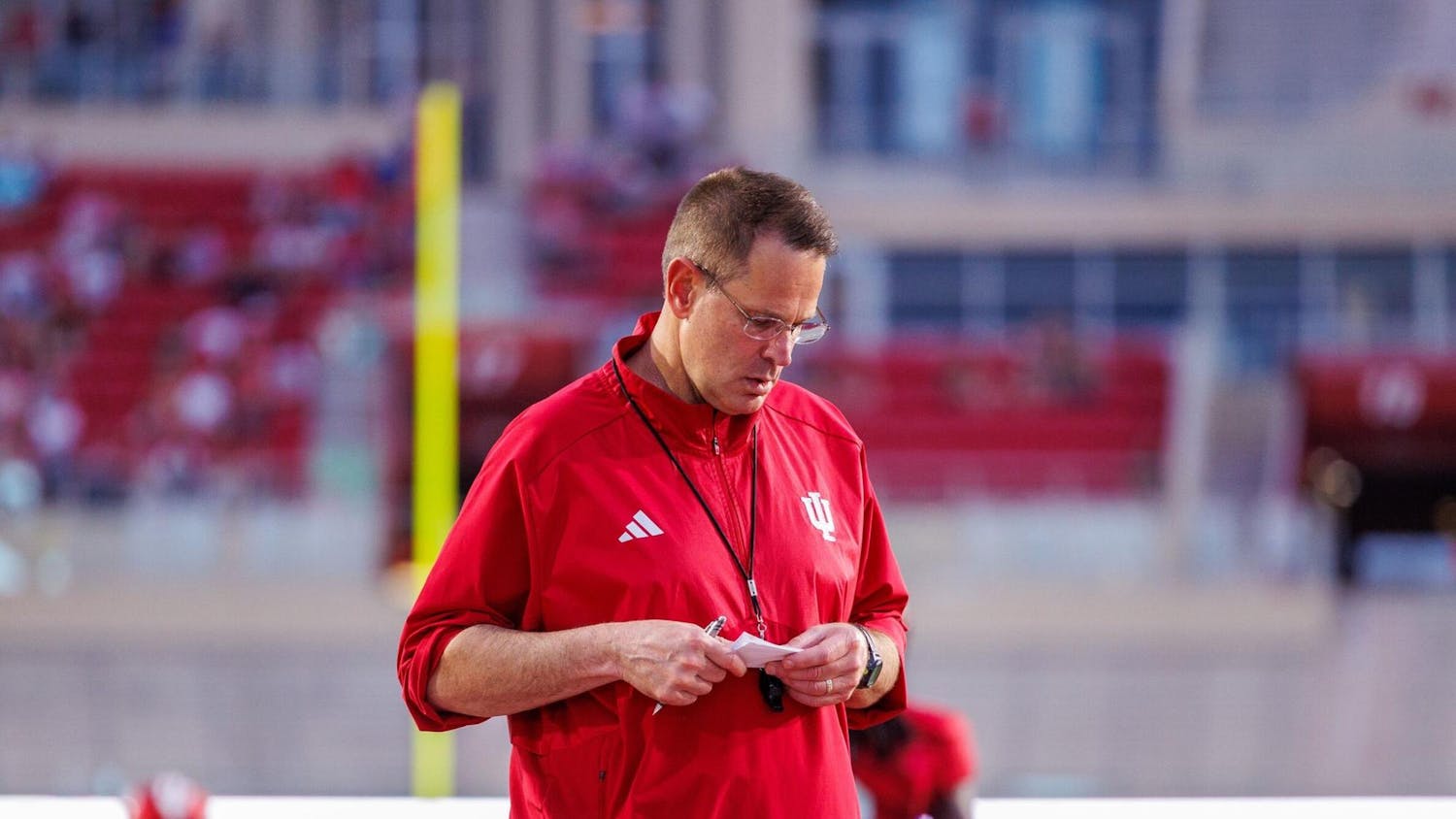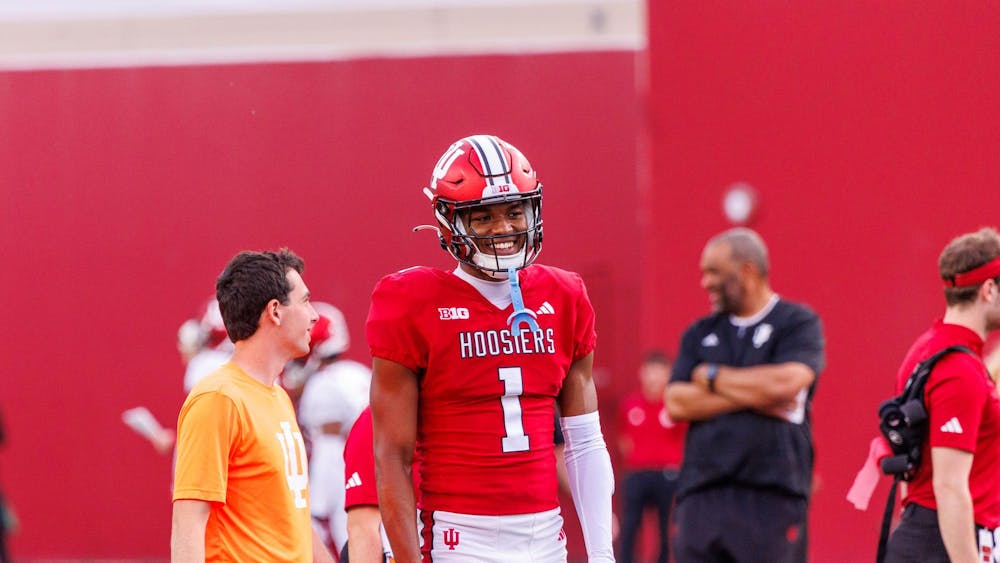When IU alumnus and current owner of the Dallas Mavericks Mark Cuban was asked what it takes for an aspiring sports broadcast student to find employment after school, he had one answer.
An IU degree.
While the packed Whittenberger Auditorium cheered as Cuban smiled past the stage Thursday afternoon, he continued to tell the students in the crowd to keep learning.
“The best thing I learned at Indiana is how to learn,” Cuban said.
Cuban’s appearance was part of a Sports Media and Technology Program put together by the Media School, the Cuban Center and FOX Sports University. Alongside Cuban was IU alumnus and current FOX Sports President Eric Shanks. Galen Clavio, head of the National Sports Journalism Center at IU, moderated the panel.
Throughout the hour, Shanks and Cuban answered questions from Clavio about new technology in sports broadcasting, social media, its role in sports media and how to be successful in the workforce after school. The two also fielded questions from the crowd in a Q&A session for the final 20 minutes of the panel.
Cuban, who recently donated $5 million toward the construction of the Cuban Center, which will be opened in the summer of 2017, explained the creation and availability of inside-out cameras, outside-in cameras and freeD Technology.
Widely known as the most modern form of broadcast, Cuban said, freeD technology is the process of taking images from multiple cameras at 360 degrees’ worth of angles and “stitching” them together for a seamless progression of views all the way around an object or play.
Shanks said while there are many “toys” to play with nowadays, using the correct technology is just as important for the story as what kind of technology is at the reporter’s disposal.
“If we want to tell the story, we’ll tell it in a particular way with the technology,” Shanks said. “We look at virtual reality as the now thing, not the next thing. It only works if it tells the story.”
While the panel began with technology, talks of social media dominated most of the discussion as Cuban said most social mediums have found their respective demographics.
He and Shanks said while social media is a difficult field to begin to compete in, it’s important that a reporter or company understands what people want to use or know how to use. Shanks used the hashtag on Twitter as an example.
“The hashtag is like wetting yourself in a dark suit,” he said. “You may feel warm and fuzzy, but nobody else does.”
David Sugarman, a sophomore student who is involved in WIUX student radio and Big Ten Network Student University broadcasting, said he attended the panel because both alumni have been around the sports industry in many capacities.
Sugarman said he was impressed by how much insight Cuban and Shanks were able to provide in just an hour, and he said he also has an interest in new technology.
“I’m interested in the virtual reality and getting it away from the gimmicky ‘Oh, you can pretend you’re the Rangers’ goalie for 10 minutes’ and actually working that in, not just making it a fun thing,” Sugarman said. “Actually working it in to the viewing experience.”
Cuban said while having knowledge of new technology is important, the most important part to finding success in the workforce is doing research and understanding what works and what doesn’t.
“Can you change the game but do your homework to make sure the same thing hasn’t been done before and failed 20 times?” Cuban said.






